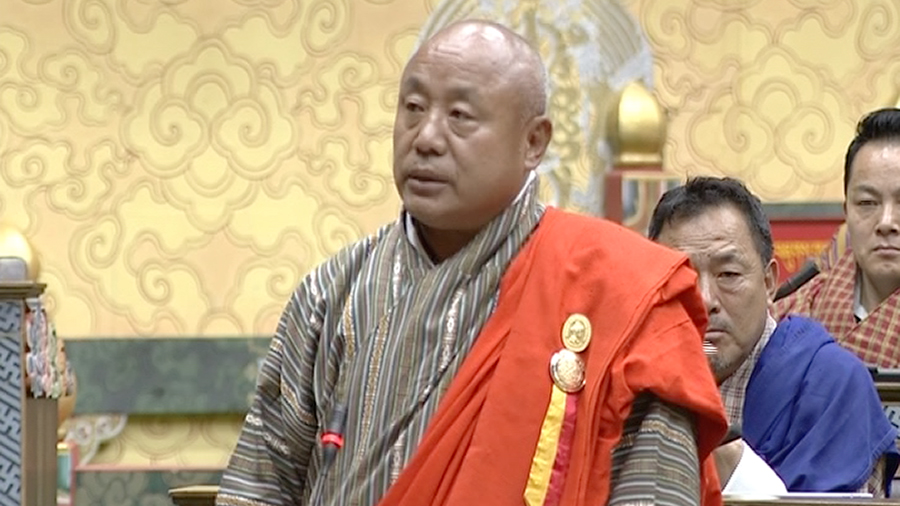
The National Assembly continued its discussions on the declaration of a new biological corridor between Sakteng Wildlife Sanctuary and Bumdeling Wildlife Sanctuary today. During the deliberations, most members of the house expressed their concerns on the consequences the restrictions and prohibitions will have on the residents. However, the Agriculture and Livestock Minister says the environmental and financial benefits of the declaration will outweigh the disadvantages.
The members shared that declaring a new biological corridor will have multiple restrictions and prohibitions while carrying out developmental activities for the people living in the six gewogs that will fall under the area. Five gewogs of Toedtsho, Yalang, Khamdang, Bumdeling, and Yangtse in Trashi Yangtse and Phongmey Gewog in Trashigang including over 360 households will fall under the proposed area.
“For instance, people living in the six gewogs might be restricted from cutting trees and constructing footpaths in case they want to draw drinking water. This is because there were incidents elsewhere of people being restricted even to collect non-wood products from the forests once the area falls under a biological corridor. Therefore, I feel it is important to mention about its negative impacts to let people know better about the consequences from the beginning itself,” said Ugyen Wangdi, MP, Drametse-Ngatshang constituency.
“People living within the biological corridor depend on agriculture and livestock but one of the prohibited activities is construction of roads. In such cases, it is important to explore other means or alternatives to transport their farm produce. Doing so will help bring equal development in the six gewogs,” said Karma Lhamo, MP, Monggar constituency.
Meanwhile, the Agriculture and Livestock Minister and the Chairperson of the Environment and Climate Change Committee clarified that declaration of the new biological corridor will help secure additional financial support. They also said it will not have an adverse impact on the developmental works of the gewogs.
“The biggest concern of people in the six gewogs is human-wildlife conflict and wild animals damaging their crops. But once we declare the biological corridor, we will get assistance from both international agencies and the government to tackle the problem. For instance, the government is spending huge amounts on chain link fencing to mitigate human-wildlife conflict. Similarly, international donors will also support Bhutan to initiate activities such as livestock insurance scheme,” said Yeshey Penjor, the Minister for Agriculture and Livestock.
“Normal developmental activities will continue as per the existing rules and regulations for people living in the six gewogs. But mining, quarrying and logging for commercial purposes and poaching of wild animals will be prohibited or restricted,” said Gyem Dorji, the chairperson of the Environment and Climate Change Committee of the National Assembly.
Established in 1994 and 2003, the Bumdeling and Sakteng wildlife sanctuaries are home to 124 different bird species, 227 plant species and 25 species of mammals. The proposed biological corridor, which will cover 216 square kilometres will be the ninth such corridor in the country.
The deliberation will continue tomorrow followed by the adoption of the declaration.
Sonam Yuden/ Pema Tshewang
Edited by Kipchu








